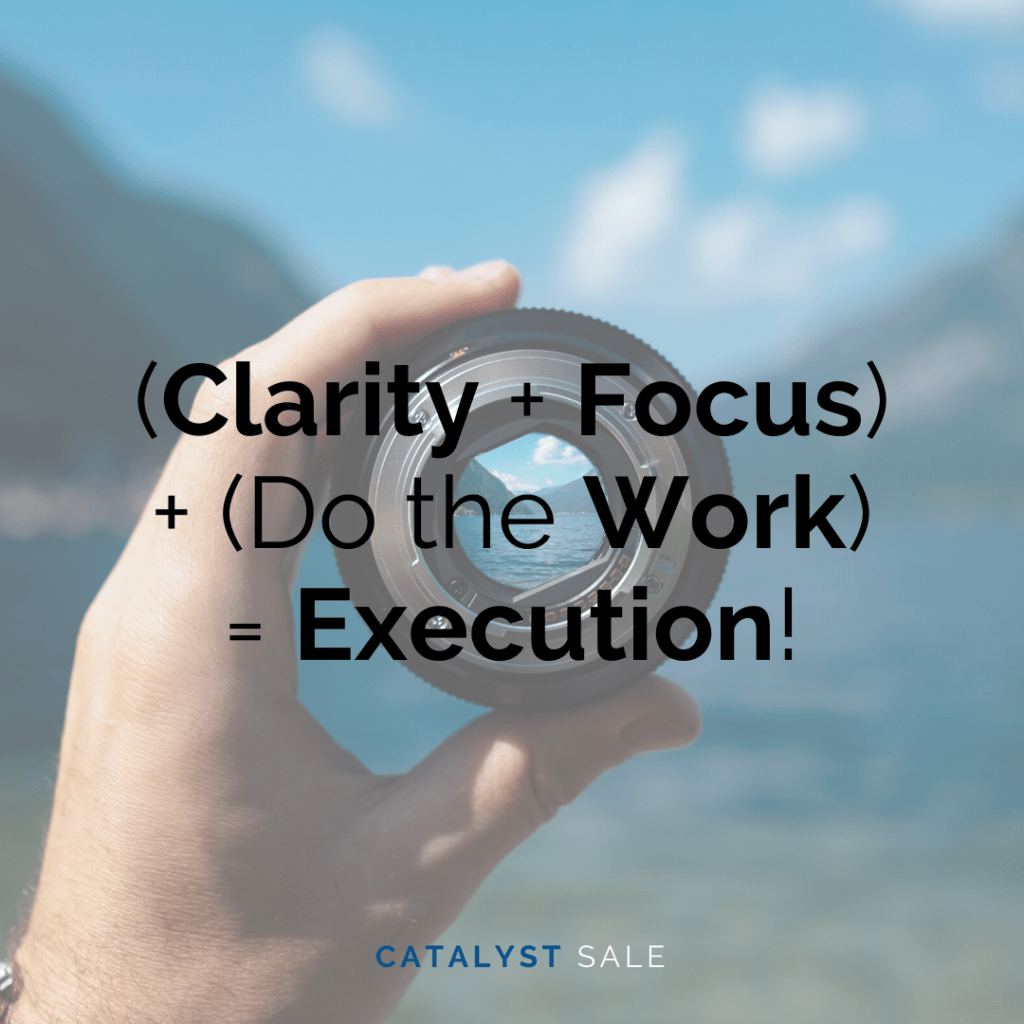There are numerous sales skills that are imperative to your professional success. Some of these may be skills you’ve already learned, but others will change the way you tackle sales completely. Here are 15 foundational sales skills you need to succeed.
Imperative Sales Skills Every Professional Must Master:
1. Conducting Research
First and foremost, you need to know how to properly conduct research. Don’t complicate the research process when thinking in terms of your clients.
Start with three questions:
- Where am I going to focus my attention?
- How will I go about gathering the information?
- What information do I need to gather?
Refer back to these questions often as you are doing your research. They will keep you on the path to success.
2. Asking Better Questions
As a sales professional, it’s important that you’re asking good questions. This can be tricky, but there are a few sure ways to ensure that you’re asking the right things.
All of your questions should be worded plainly to prevent miscommunication. Ask simple questions. Cover who, what, where, when, why, and how if applicable.
3. Documentation
Most sales professionals use a CRM as a factual point of record of what is happening inside each of their opportunities. This is a good first step, but there are other things you can do to improve your documentation.
One additional tactic is using call planning. A call plan should outline:
- Who will be in the meeting
- Your objectives
- Their objectives
- Desired next steps.
You can then use this outline during phone calls or meetings with team members and clients.
Call planning, paired with call follow up will dramatically increase your level of documentation. Your call follow-up should include what you heard, what you’re excited about, and what your next steps are. All of this information can then be copied into your CRM.
4. Decision making
We make decisions every day. Whether or not to eat the ice cream, or if we should make that phone call. Not all decisions are this simple, though, especially not as a sales professional.
Something that can help us with decision making in sales is having a clear set of guiding principles or a framework that you use to make decisions.
This could include things like:
- Understand the customer better than they understand themselves
- Deliver the solution in the context of the customer
- Don’t limit yourself by preconceived notions
- Don’t make your problems the customers’ problems
It’s also critical to determine if your decision is a type one or type two decision. A type one decision is reversible, a type two decision is not.
Once you’ve identified a framework or guiding principles, and have decided if your decision is type one or type two, you’ll be able to make the most informed decision you can.
5. Critical Thinking
Critical thinking is pretty self-explanatory, but vital to your success as a sales professional. You need to be able to critique and evaluate things around you.
Important questions to ask yourself in terms of thinking critically in sales are what type of data you will use, and where you will be gathering your data from.
Critical thinking in sales means taking an input, evaluating it, making a decision about what to do, and then taking action to move forward and complete that decision.
6. Creative Thinking
Creative thinking is extremely different from critical thinking, but equally as important. Creative thinking allows you to create an opportunity to innovate.
Creative thinking is gathering information, reflecting on the information you already know, and using that information to think outside of the box.
When asking yourself what the best way to approach a situation or solve a problem is, take a more creative approach to coming up with your answer.
Ask yourself: How have others solved this problem? How have I solved it in the past?
7. Communication
Communication is an essential skill to have as a sales professional.
To help improve your communication is to look at it as a story. As a sales professional, you come into your client’s story as a guide. It’s your job to know the characters, and the roles they play. It’s important that you ask yourself how to shift the conversation so your client is the hero.
Be clear with what you’re trying to accomplish, have a point.
Know where the beginning, middle, and end of the story are. Identify the problem, and deliver a plan towards the solution. It’s your job as the guide to know the expected transition and to engage from the perspective of the customer.
8. Negotiation
We are constantly trading something, and more often than not, that thing is time. When negotiating, think about it in the context of trading.
Identify what’s important to you, as well as what’s important to your client. Assess the value of these things, then ask yourself how you can help them create even greater value within those parameters.
Be deliberate about how you gather your information throughout this process. Prioritize what’s important to the client, listen well, and document everything.
Finally, assess the value of what you’re giving them, and what they will gain from it.
9. Proposals
As a sales professional, proposals are abundant and abundantly crucial.
Your proposal should address:
- What problem you can solve
- Why solving that problem is important
- How you’re going to solve it
- How much it’s going to cost for you to do it.
The biggest mistake people make when writing proposals is putting their own information at the top. All personal information about your brand or company should go at the end of the proposal, so the recipient can read it if they wish, but it isn’t pushing any pertinent information back.
10. Project Management
Project management is a critical skill for sales professionals, but it can be challenging.
When managing a project, it’s your job to document and assign ownership to all tasks, as well as the steps you’ll need to go through to complete those tasks. It’s also necessary to identify all the resources needed to complete the project, including time.
Doing this allows you to get a better sense of the risk in the organization. As project manager, it’s your job to call people to action, and to hold them accountable for their assigned tasks.
11. Time Management
The best thing to do when looking to better manage your time is to identify the urgency and importance of the tasks you’re completing.
Track your daily activity for 5 to 10 days, using 15 to 20-minute time blocks. Then, categorize the things you did. Were they important, or not important? Urgent, or not urgent?

You can then cut out things that are neither important or urgent, decide when to do things that are important but not urgent, and focus on the things that are both important and urgent.
12. Meeting Management
The key meeting management tool is the agenda.
The meeting agenda should outline what will happen in the meeting and set clear expectations for what should be accomplished. Always ask the client if they have anything they would like to add to the agenda before the meeting starts.
As a sales professional, it’s your job to keep the meeting moving, don’t allow distractions to get you off track.
After going over the agenda and getting through introductions, get updates from both sides, and make sure there’s clarity around all steps of the plan.
Leave time at the end to answer any questions, and be sure that the meeting ends on time.
13. Setting Expectations
As a sales professional, you have to be deliberate about how you set expectations, and make sure everyone is clear on what they are.
When doing this, you have to know your limits. It’s easy to take on too much work and fail to execute all of it. Knowing your capabilities as well as the capabilities of your team can save you in the long run.
Learn what’s important to the person on the other end. Tell them what you’re going to do, and then actually do it. This sets higher expectations for you in the minds of your clients.
14. Design
Design in sales is different from what you may commonly think. We design for positive outcomes, and we can do this by beginning with the end in mind.
Think about what success for the customer looks like first, then deliver products or services to them that will make a positive impact, and get them to that idea of success. Be constantly thinking about the step just before the one you’re currently on.
Design backwards, and execute forward.
15. Execution
Clarity, focus, and action will allow you to execute any project you’re tasked with.
Clarity allows you to understand the things that will be, or need to be, done.
Focus your attention on those things, and act on your ideas.
This improves your chances of execution and will allow you to understand if the things you’re doing count, or if they will make an impact.
Execute going forward with clarity and focus, and get the work done.

Assess Your Sales Skills
You may be thinking, “I’ve got those skills!” And if that’s the case, then great!
If not, the good news is skills can be learned. Learn more from the podcast, if you feel more help consider signing up for a course, or even consider getting a mentor.
The world of sales is an intense one, but it’s an extremely rewarding one. We can’t wait to see you succeed.

